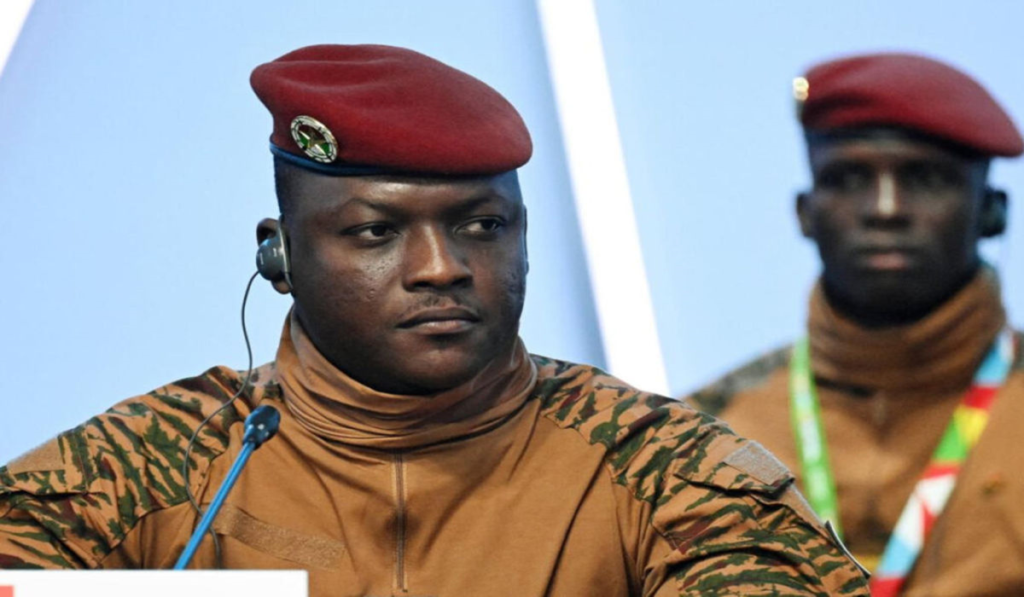Burkina Faso’s military-led government, under the leadership of Captain Ibrahim Traoré dissolves government and sacks interim Prime Minister Apollinaire Joachim Kyelem de Tambela. The decree, issued by Traoré’s office, did not specify reasons for Tambela’s removal, though it confirmed that members of the dissolved cabinet would remain in their roles until a new government is formed.

Tambela was appointed interim premier shortly after Traoré seized power in September 2022, toppling the previous military ruler Lt. Col. Paul-Henri Sandaogo Damiba. This coup marked one of several military takeovers in West Africa’s Sahel region, which has faced growing instability in recent years.
Burkina Faso has been entrenched in a brutal conflict against Islamist insurgents for nearly a decade. Armed groups linked to al-Qaida and the Islamic State have carried out relentless attacks, spreading violence that began in neighboring Mali. Despite Traoré’s promises to improve security after ousting Damiba, the situation has deteriorated further, leaving nearly half of the country outside government control, according to analysts.
The ongoing violence has claimed thousands of lives and displaced over 2 million people, half of whom are children. Critics, including rights groups and humanitarian organisations, have accused the junta of failing to address these challenges effectively while also cracking down on dissent.
The transitional government has operated under a constitution established by a national assembly comprising military officers, civil society members, and traditional and religious leaders. Pressured by the Economic Community of West African States (ECOWAS) to return to democratic governance, the junta initially pledged to hold elections in July. However, in May, it unilaterally extended the transition period by an additional five years, equivalent to a full presidential term.
This move has drawn criticism from regional and international stakeholders. Alongside Mali and Niger—two other Sahel nations now under military rule—Burkina Faso has severed longstanding ties with Western allies, including its former colonial power France, as well as ECOWAS, which it formally exited earlier this year.
The firing of Tambela mirrors recent political events in Mali, where the military junta similarly dismissed Prime Minister Choguel Kokalla Maiga and dissolved the government. Maiga’s rare public criticism of Mali’s military rulers is thought to have prompted his dismissal, highlighting tensions within the region’s military-led administrations.
As Burkina Faso’s junta faces increasing pressure to stabilize the country and deliver on its promises, the political shake-up adds another layer of uncertainty to a nation already grappling with profound security and humanitarian crises.


